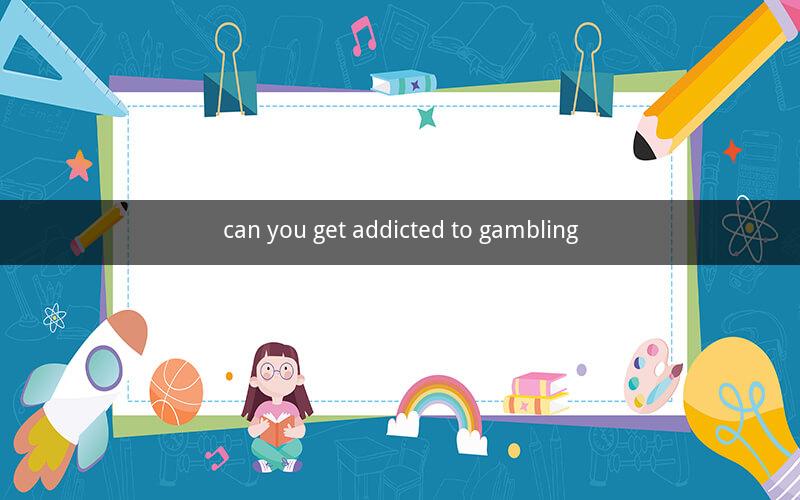
Contents
1. Understanding Gambling Addiction
2. Signs and Symptoms of Gambling Addiction
3. Causes of Gambling Addiction
4. The Psychological Effects of Gambling Addiction
5. The Social and Economic Consequences of Gambling Addiction
6. Treatment and Support for Gambling Addiction
7. Preventing Gambling Addiction
8. The Role of Technology in Gambling Addiction
9. Case Studies: Real-Life Experiences of Gambling Addiction
10. Conclusion
1. Understanding Gambling Addiction
Gambling addiction, also known as compulsive gambling or pathological gambling, is a condition characterized by an inability to control the urge to gamble, despite the negative consequences it may have on one's life. It is a form of impulse control disorder that can affect individuals of all ages, genders, and socioeconomic backgrounds.
2. Signs and Symptoms of Gambling Addiction
Identifying the signs and symptoms of gambling addiction is crucial for early detection and intervention. Common signs include:
- Preoccupation with gambling thoughts
- Needing to gamble with increasing amounts of money to achieve the desired excitement
- Feelings of remorse, guilt, or shame after gambling
- Trying to stop or reduce gambling, but failing to do so
- Gambling to escape problems or relieve negative emotions
- Borrowing money or selling possessions to fund gambling activities
- Lying to family, friends, or healthcare professionals about gambling habits
3. Causes of Gambling Addiction
Several factors contribute to the development of gambling addiction, including:
- Genetic predisposition
- Environmental influences, such as exposure to gambling at a young age
- Personality traits, such as impulsivity and thrill-seeking behavior
- Psychological factors, such as depression, anxiety, or substance abuse disorders
4. The Psychological Effects of Gambling Addiction
Gambling addiction can have severe psychological effects on individuals, including:
- Depression and anxiety
- Suicidal thoughts and behaviors
- Relationship problems
- Reduced self-esteem and self-confidence
- Post-traumatic stress disorder (PTSD) due to the trauma of financial loss and personal consequences
5. The Social and Economic Consequences of Gambling Addiction
Gambling addiction can have significant social and economic consequences, such as:
- Financial ruin
- Loss of employment
- Homelessness
- Divorce and family breakdown
- Legal problems, such as fraud or theft
6. Treatment and Support for Gambling Addiction
Treatment for gambling addiction may include:
- Cognitive-behavioral therapy (CBT)
- Medication for co-occurring mental health disorders
- Support groups, such as Gamblers Anonymous
- Inpatient or outpatient rehabilitation programs
7. Preventing Gambling Addiction
Preventing gambling addiction involves:
- Education about the risks of gambling
- Setting limits on gambling activities
- Seeking help if there is a risk of developing an addiction
- Encouraging responsible gambling practices
8. The Role of Technology in Gambling Addiction
Technology has played a significant role in the rise of gambling addiction, with online gambling becoming increasingly accessible. This has led to:
- Increased exposure to gambling opportunities
- Easier access to high-stakes gambling
- A sense of anonymity, which can make it easier to hide gambling habits
9. Case Studies: Real-Life Experiences of Gambling Addiction
Real-life stories of gambling addiction can provide insight into the challenges faced by individuals struggling with this condition. For example, John, a 45-year-old accountant, lost his job and his family due to his gambling addiction. He was able to overcome his addiction with the help of a support group and therapy.
10. Conclusion
Gambling addiction is a serious condition that can have profound effects on individuals and their families. Recognizing the signs and symptoms, understanding the causes, and seeking appropriate treatment and support are essential for overcoming this addiction.
Questions and Answers
1. Q: Can anyone become addicted to gambling?
A: Yes, anyone can develop a gambling addiction, regardless of age, gender, or socioeconomic status.
2. Q: Is there a cure for gambling addiction?
A: There is no definitive cure for gambling addiction, but it can be effectively managed with treatment and support.
3. Q: How common is gambling addiction?
A: The prevalence of gambling addiction varies by country and region, but it is estimated that around 2-3% of the population is affected.
4. Q: Can gambling addiction be passed down genetically?
A: There is evidence to suggest that genetic factors can contribute to the risk of developing a gambling addiction.
5. Q: What is the most effective treatment for gambling addiction?
A: The most effective treatment for gambling addiction is often a combination of cognitive-behavioral therapy, medication for co-occurring disorders, and support groups.
6. Q: Can a person overcome a gambling addiction on their own?
A: While some individuals may be able to overcome their addiction with self-help strategies, seeking professional help is often more effective.
7. Q: Is it possible to prevent gambling addiction?
A: Yes, preventing gambling addiction involves education, setting limits, and seeking help if there is a risk of developing an addiction.
8. Q: Can technology help or worsen gambling addiction?
A: Technology can both help and worsen gambling addiction. Online gambling platforms can make it easier to access and engage in gambling activities.
9. Q: How can family members support someone with a gambling addiction?
A: Family members can support someone with a gambling addiction by offering empathy, encouragement, and seeking help together.
10. Q: What are the long-term effects of gambling addiction?
A: The long-term effects of gambling addiction can include financial ruin, relationship breakdown, and mental health issues.